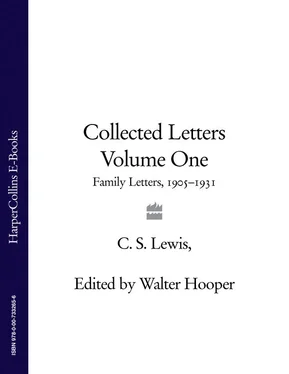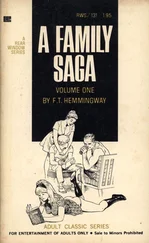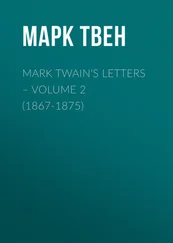My dear Galahad,
I was very glad to get your interesting letter–which was fortunately longer than some of them–as I was beginning to wonder what had become of you; I think your ‘lapse’ this term puts you on a level with mine last, so that we can cry quits and admit that we are both sinners.
I have had a great literary experience this week. I have discovered yet another author to add to our circle–our very own set: never since I first read ‘The well at the world’s end’ have I enjoyed a book so much–and indeed I think my new ‘find’ is quite as good as Malory or Morris himself. The book, to get to the point, is George Macdonald’s ‘Faerie Romance’, Phantastes, 30 which I picked up by hazard in a rather tired Everyman copy–by the way isn’t it funny, they cost 1/1d. now–on our station bookstall last Saturday. Have you read it? I suppose not, as if you had, you could not have helped telling me about it. At any rate, whatever the book you are reading now, you simply MUST get this at once: and it is quite worth getting in a superior Everyman binding too.
Of course it is hopeless for me to try and describe it, but when you have followed the hero Anodos along that little stream to the faery wood, have heard about the terrible ash tree and how the shadow of his gnarled, knotted hand falls upon the book the hero is reading, when you have read about the faery palace–just like that picture in the Dulac book–and heard the episode of Cosmo, I know that you will quite agree with me. You must not be disappointed at the first chapter which is rather conventional faery tale style, and after it you won’t be able to stop until you have finished. There are one or two poems in the tale–as in the Morris tales you know–which, with one or two exceptions are shockingly bad, so don’t TRY to appreciate them: it is just a sign, isn’t it, of how some geniuses can’t work in metrical forms–another example being the Brontes.
I quite agree with what you say about buying books, and love all the planning and scheming beforehand, and if they come by post, finding the neat little parcel waiting for you on the hall table and rushing upstairs to open it in the privacy of your own room. Some people–my father for instance–laugh at us for being so serious over our pleasures, but I think a thing can’t be properly enjoyed unless you take it in earnest, don’t you? What I can’t understand about you though is how you can get a nice new book and still go on stolidly with the one you are at: I always like to be able to start the new one on the day I get it, and for that reason wait to buy it until the old one is done But then of course you have so much more money to throw about than I.
Talking about finishing books, I have at last come to the end of the Faerie Queene: and though I say ‘at last’, I almost wish he had lived to write six books more as he hoped to do–so much have I enjoyed it. The two cantos of ‘Mutabilitie’ with which it ends are perhaps the finest thing in it, and if you have not done so already, you should read them whenever you have the time to spare.
I am now–by the same post–writing for a book called ‘British Ballads’ (Everyman) 31 in the chocolate binding of which I used to disapprove: so you see I am gradually becoming converted to all your views. Perhaps one of these days you may even make a Christian of me. Yes: I have at last heard from the girlinosbornes: but like the minstrel in Scott,
‘Perhaps he wished the boon denied’ 32
as the bill is rather a staggerer and my finances are not very blooming at present–I am thinking of sending it out to my brother to pay.
I well remember the glorious walk of which you speak, how we lay drenched with sunshine on the ‘moss’ and were for a short time perfectly happy–which is a rare enough condition, God knows. As Keats says ‘Rarely, rarely comest thou, spirit of Delight’. 33 I do hope we shall have many more pleasant hours such as that the days are running in so fast now, and it makes me so sad to think that I shall have only two more sets of holidays of the good old type, for in November comes my 18th birthday, military age, and the ‘vasty fields’ 34 of France, which I have no ambition to face. If there is good weather and you get some days off next hols., we should go for some walks before breakfast–the feel of the air is so exquisite. I don’t know when I can expect to come home.
Jack
TO HIS FATHER (LP V: 60-1):
[Gastons]
Postmark: 10 March 1916
My dear Papy,
‘I wonder’ said Demetrius, and so do I. You know it is a terrible thing for a young boy to get into the hands of a rascally old firm of solicitors to be cajoled into signing all sorts of mysterious documents. How do I know to what I have committed myself? Perhaps my three moors are being made over, or you are putting an entail on my little place in Rome. (What is an entail) Ha! Ha! The missing heir. Indeed the whole proceeding savours of the novelette: you must cut your moustache shorter and call yourself Richard or Rupert. However, I herewith enclose the enigmatic slip of paper, with the forged signature inked over ‘avec d’empresment’ (French language). By the way, I see that I have acknowledged £16-13-10. Well what became of this…this…business…this tea business?
I hope you have read your Times Literary Supplement this week: do you see that the commonwealth of letters is the richer by a great new poet? Now let the stars retire for the sun has risen: let Hemans and M’Kitrick Ros 35 be silent, for Mr. Little has come! It is really too good to be missed. I love the fine impassioned address to the sea, as much greater than Tennyson’s ‘Break, break, break’ 36 as that is than the one in the Prometheus, the one you will have noticed beginning
‘Oh, wave! Thy clemency is open
To shrewd suspicion’. 37
What melody! What masterly phrazing and gorgeous imagery! We may pass over such minor beauties as the lioness which becomes the ‘formidable sultaness’ and go on to the last piece which contains the gems about the ‘golden brawn’ of the sunrise, the ‘various viands of the rainbow’ and nature ‘gorgeous, great, gratuitous’. Why this is a more exquisite song than the other about ‘Presumption, pride, pomposity’, though there is a certain likeness. This I suppose is the modern school that has got beyond Tennyson. Well perhaps they have: but I for one had sooner walk on the earth than soar on any Pegasus which bears such a disquieting resemblance to a rocking horse.
St. John’s, the school at Leatherhead whither my fellow pupil is wont daily to repair for gentlemanly and vertuous discipline and schooling in the humane letters, has got an epidemic of influenza and is breaking up for the term. So I suppose we shall have our well beloved Ford more in evidence now. Tell Arthur to write. I am sorry to hear what you say about Grandmother: I feel that we ought to have seen more of her, but it was not easy. 38 Your loving,
son,
Jack
TO ARTHUR GREEVES (LP V: 63-4):
[Gastons
14 March 1916]
(You ought to know the date.)
My dear Galahad,
It must have been a very old Everyman list on which you found ‘Phantastes’ as one of the new ones, since, to my knowledge, the copy I got had been on the bookstall for weeks. Everymans with us have gone up 1d. in the shilling: I suppose it is just the same at home? By the time you get this you will probably have finished Phantastes, so you must give me your verdict on it as a whole: when one has read a book, I think there is nothing so nice as discussing it with some one else–even though it sometimes produces rather fierce arguments.
I too am rather disappointed. The ‘British Ballads’ has come, and though I am awfully bucked with the edition–I can’t think why I didn’t appreciate it before. This must be a triumph for you–the reading matter is not nearly so good as I expected. For one thing, instead of being all made up of real old ballads as I hoped, it is half full of silly modern imitations and even funny ones. Don’t you loathe ‘funny’ poetry? However, as it is not your style of book, I suppose I am boring you.
Читать дальше












